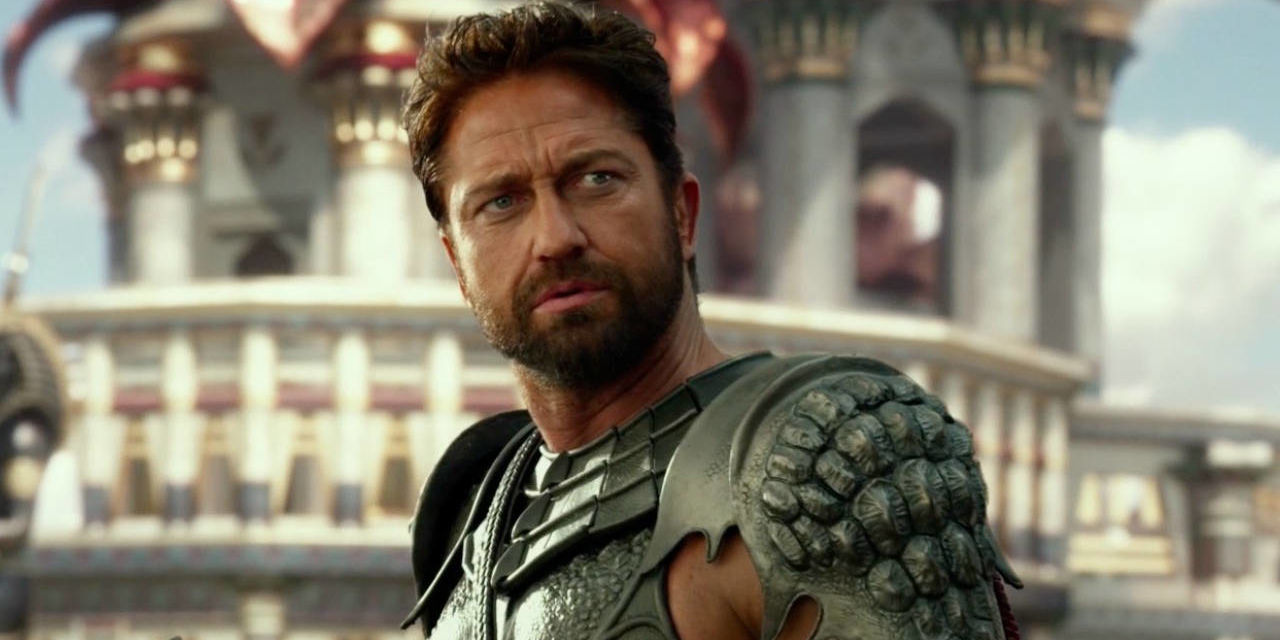
What’s in a flop? That much dreaded result when a costly film just doesn’t find its audience, or is mauled via word of mouth. Regardless of the whole spiel that a movie is “a collaboration of hundreds,” when the results go south someone has to be stuck with the blame, and the easy answer is that it’s the director’s fault.
Let’s observe examples of the films that flopped, and the director’s they took down with them.
10. The Scarlet Letter (1995) – Roland Joffe
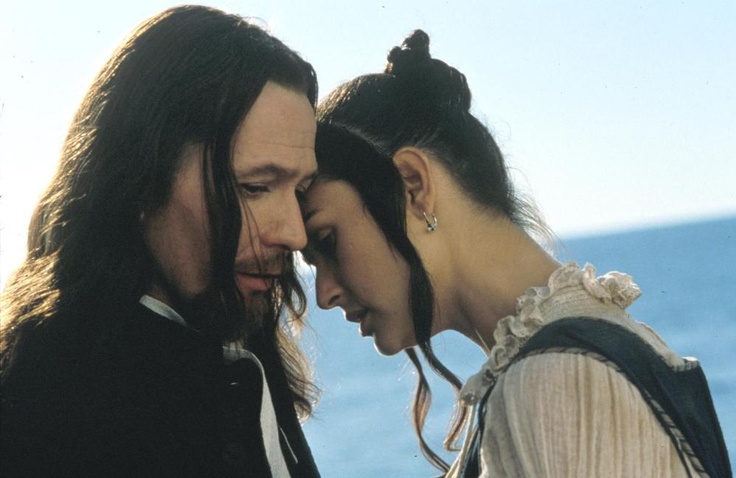
Pre-Flop: After toiling away in TV land in his native Britain, Roland Joffe teamed up with wunderkind producer David Puttnam for a one-two punch breakthrough that swept the awards season plus critics off their feet.
First, “The Killing Fields” (1984), a haunting and immensely moving treatise on the ‘cleansing campaign’ atrocities in Cambodia, and then the lush yet equally devastating “The Mission” (1986), centred around a Jesuit priest siding with South American natives against the Portuguese slavers.
Both films featured stellar visuals (career-best work from famed cinematographer Chris Menges), nuanced and wrenching performances, and an outright fantastic handling on its direction.
Eyes were unanimously glued on a follow-up; “Shadow Makers” (1989) and “City of Joy” (1991) were the lower key results and didn’t take the world by storm, yet in retrospect they were strong efforts. Still, the awards and big leagues beckoned, so Joffe followed with something ambitious…
Film in Question: An adaptation of Nathaniel Hawthorne’s classic morality tale “The Scarlet Letter,” armed with a healthy budget and an A-list cast, seemed like a sure thing. Yet the film mussed up the opportunity for an award-winning topical movie by boiling down its material into a paperback ‘bodice ripper’ full of cheesy slow-mo love scenes and New Age retrospect placed on the Puritan era.
The production and direction certainly look its budget, but sadly it’s a shallow affair that felt below the talent involved (including a strong cast of Gary Oldman and Robert Duvall). No culprit felt more guilty than Joffe and as the film died a painful death at the box office, so did a major chunk of respect for Joffe’s ability behind the camera.
Post-Flop: Regardless, Joffe never stopped working, yet it only furthered his decline by making him feel like a bandwagon chaser. The flat neo-noir “Goodbye Lover” (1998) wished to be part of the 90’s crime/thriller craze; “Vatel” (2000) was formulaic Miramax award fodder; and “Captivity” (2007) was a weak attempt at ‘survival horror’ in the torture porn heyday. He has made several more films and TV assignments, but most critics have been hard pressed to remember or let alone care – the damage is already done.
9. Lolita (1997) – Adrian Lyne
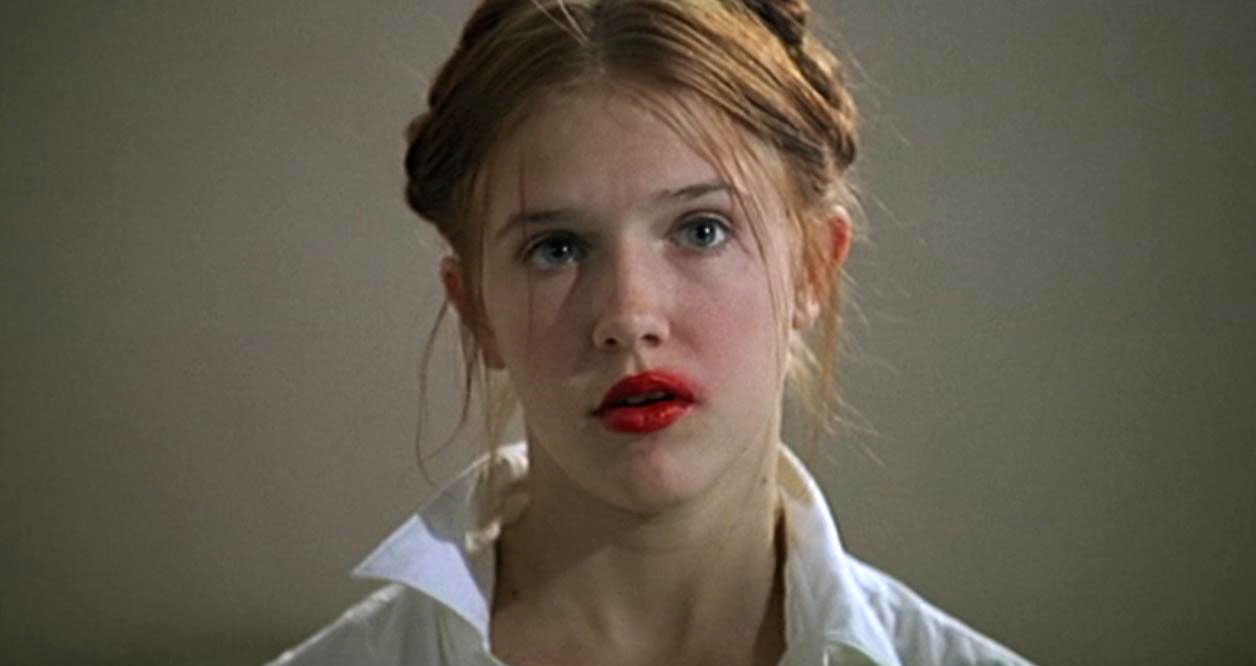
Pre-Flop: Riding high on a wave of British filmmakers flourishing in the states during the mid-80s, Adrian Lyne jumped up to the top of the directorial heap with the smash hit “Flashdance” (1983), an early win for the Bruckheimer/Simpson producing duo. It gave us a slickly shot, synth-heavy spectacle of Jennifer Beals in spandex, emphasised by Lyne’s gorgeous photography.
His impressive style lent themselves quickly to other pop culture hits “9 1/2 Weeks” (1986), “Fatal Attraction” (1987) and “Indecent Proposal” (1993), adult-targeted films that dove into themes of sexuality, but did so in a classy and compelling way, with show-stopping performances, and of course, filmed in that trademark quality visual.
Lyne was a hot property, and even though his attempt to break free from his usually territory, the nightmarish and emotionally harrowing “Jacob’s Ladder” (1990), didn’t set the box office on fire, the critics unanimously praised it, and it does stand as an incredible piece of work that hints at a master filmmaker in Lyne. Regardless, of its quiet reception, it at least enjoys a rightful cult reputation at present.
Film in Question: Never one to balk at challenging ‘adult’ material, Lyne set his sights on adapting Vladimir Nabokov’s seminal novel “Lolita,” the infamous yet critically respected story of a troubled writer and his rollercoaster romance with an underaged girl. Stanley Kubrick had adapted it before in 1962 to knee-jerk controversy yet overall acclaim – the director cleverly played up the biting comedy and dark off-kilter nature of the story, whilst early 60’s censorship kept the blatant sexuality more implied than in your face.
With this second adaptation, Lyne intended to go on a different path, fully exploring the racier side of things whilst playing the ordeal as a doomed romance. Whilst its two central performances held strong (Jeremy Irons and Dominique Swain), the rest ultimately doesn’t, sitting in the shadow of the far superior Kubrick version. Still, all of this was moot, as the main character as a child molester kept the film from gaining American distribution, although it eventually managed to sneak by with a limited release. The film bombed dramatically and the taint on Lyne’s career was rightfully felt.
Post-Flop: Lyne’s career stalled big time after the whole “Lolita” ordeal, especially tainting his pedigree in the states, with his name no longer topping producer’s lists. Regardless, after five years he was able to make “Unfaithful” (2002), a sexy thriller featuring Richard Gere and Diane Lane. It was an involved morality tale and was warmly received by the critics, yet was soon forgotten, with the type of movies that fit in Lyne’s wheelhouse growing out of popularity. He hasn’t directed since.
8. The League of Extraordinary Gentlemen (2003) – Stephen Norrington
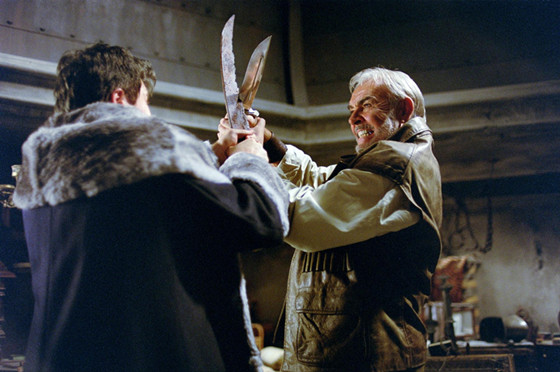
Pre-Flop: Working successfully as a SFX guru, Stephen Norrington directed the grimy and effective horror flick “Death Machine” (1994), yet it was his follow-up – the gory Marvel and kung-fu mash-up “Blade” (1998) – that made him a hot commodity in the industry, with several producers eager to have his dark and hip approach grace their blockbuster properties.
Instead, Norrington made the highly personal dark satire “The Last Minute” (2001) – a movie that was forgotten and left those who saw it bewildered. Regardless, it still showcased him as a unique talent, although the pressure was on for his next project to hit big since he had self-financed the movie mostly out of his own pocket.
Film in Question: “The League of Extraordinary Gentlemen” was a comic book adaptation that seemed like a surefire hit matched with Norrington for studio heads, yet the concept of making a summer event movie from Alan Moore’s deconstruction of Victorian literature figures never boded well for most.
Add to that a production mired with battles with star Sean Connery, and a flood of studio notes resulting in a messy product of film by committee; Norrington’s unique voice and visual aesthetic were completely missing from proceedings, in what became a painful bellyflop for 20th Century Fox’s fiscal year.
Post-Flop: Norrington quite frankly retired from the industry after his miserable experience and focused on sculpting artwork instead. He has hinted once or twice over the years of a return – he was attached to remakes the “Clash of the Titans” and “The Crow” before leaving.
7. Gods of Egypt (2016) – Alex Proyas
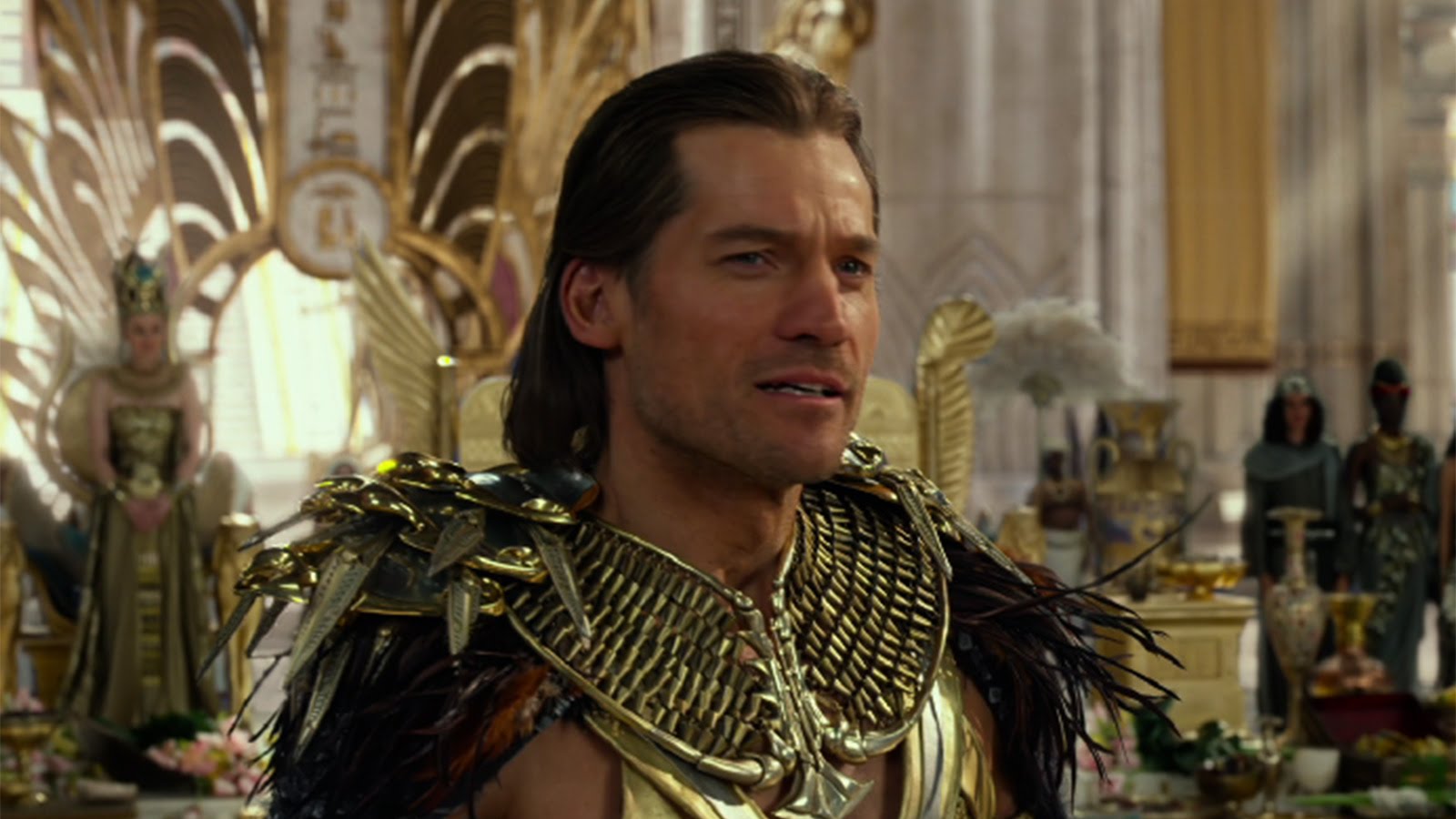
Pre-Flop: Greek/Australian director Alex Proyas had carved out a solid pedigree as a blockbuster director who could deliver that extra bit of unique flavour to whatever assignment he was given. His debut “The Crow” (1994) was plagued with production problems (the most devastating had star Brandon Lee killed on set by a misfiring cartage), yet it still managed to be a confident success – a dark and edgy revenge tale with a supernatural twist that stunned visually.
He followed it with the even more impressive “Dark City” (1998), a mishmash of German Expressionism, Clive Barker, and 50’s crime/sci-fi pulp, all wrapped up by a script that was as clever as it was playful. The film was destined to be a cult classic and it swiftly did in the booming DVD age.
Although Proyas watered down his individual stylings for his next two – “I, Robot” (2004) and “Knowing” (2009) – they were still entertaining star vehicles that made sizeable profits and helped raise his status amongst producers, priming him for that right big budget project that would ratchet him up to the A-list.
Film in Question: After toiling away for close to a decade on false-starting projects (‘Dracula: Year Zero” and “Paradise Lost” sounded promising but died), Proyas finally began production on “Gods of Egypt,” an expensive and ambitious fantasy take on the ancient Egyptian mythos.
Unfortunately, it didn’t help that amidst this fervent climate of Hollywood’s anti-whitewashing backlash, the movie already had the public hating on it before it arrived in cinemas – Scottish actor Gerard Butler and Danish actor Nikolaj Coster-Waldau were the headlining Egyptian royalty, with a pale-skinned light-eyed cast filling out the majority of the other roles. In all fairness, the film certainly wasn’t striving for realism (people do, in fact, transform into metallic hawks mid-battle and bust out lightning bolts from their eyes), but never in recent times has the ethnic casting couch felt so backwards.
Add to that the fact that when the film eventually arrived, it was just plain terrible. Bastardising a wealth of old myths for Hollywood spectacle could’ve been passably fun if it wasn’t drowning in painful CGI, horrible dialogue, and even worse performances. Butler is only the one appearing to have any fun, yet one can’t imagine why. The film barely broke even with its worldwide gross, yet things didn’t end there.
Post-Flop: While it’s slightly unfair to say Proyas’ career is in complete tatters as a result (it’s only been a year since this failure’s release), sadly one has to take into account the massive hole the director dug for himself during the film’s post-release – he went on a lengthy Facebook rant pointing the finger at “deranged” modern film critics for the movies failure, calling them everything from “less than worthless” to “diseased vultures” pecking off “Roger Ebert’s corpse.”
Understandably, the man was upset that a film he worked on for years died a swift one critically and financially, but the entire rant just felt someone stubbornly not willing to accept that the resulting movie was… well, just a bit crap, really. Who knows if the tirade will echo on toward his future reputation? Some will most likely think twice before hiring him for their next attempt at a franchise starter.
6. Night of the Hunter (1955) – Charles Laughton
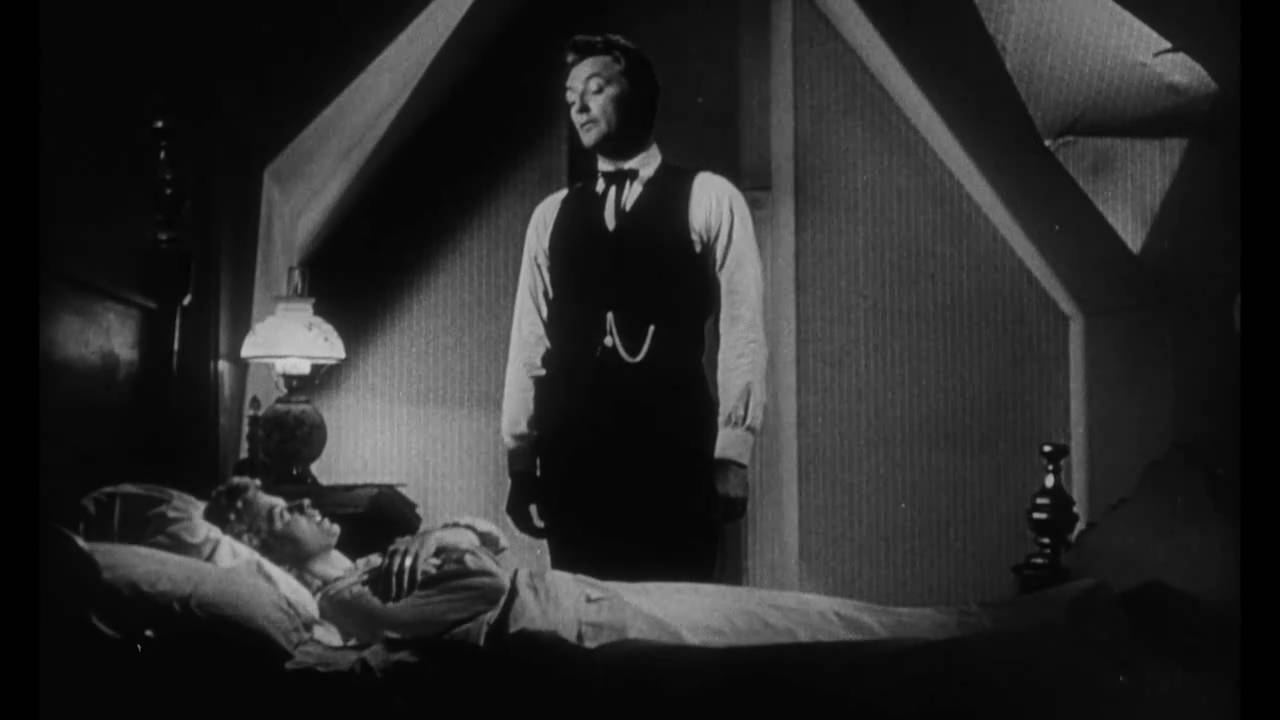
Pre-Flop: Charles Laughton was a much-lauded talent on the British stage before making the transition over to Hollywood in the early 30s where he took the acting scene by storm, with iconic takes on Captain Bligh and Quasimodo in adaptations of “Mutiny on the Bounty” (1935) and “The Hunchback of Notre Dame” (1939).
He stole the screen whenever he was on it and worked with such masterful directors as Alfred Hitchcock, Jean Renoir, David Lean and Stanley Kubrick. Heck, even the infamously introverted actor Daniel Day-Lewis has gushed about him being “the greatest film actor” and his career an “inspiration.”
Coupled with years of stage direction experience, the very talented Laughton seemed a shoo-in to make a transition into a directing in the mid-50s…
Film in Question: Said movie was the landmark noir thriller “The Night of the Hunter” (1955), featuring Robert Mitchum in a career-best performance as a homicidal preacher who slinks his way into the life of a single mother and her children. It’s an atmospheric and dark classic and one that has not only been heralded as one of the greatest film of that decade, but in 2008, Cahiers du Cinema regarded it as the second greatest film of all time.
So what’s this film doing on this list? Well, at the time it was a costly financial and critical failure. Many critics were put off by one of movie’s most respectable thespians making an offbeat genre flick with horror overtones, despicable characters, and an unrelentlessly dark mood. In retrospect, those are some of the exact traits that have helped it endure over decades as a relevant piece of cinema.
Post-Flop: Laughton was understandably pained by the films disastrous failure, and quickly brushed off his directorial ambitions with mandate to never return. So whilst that career died, he shrugged it off his shoulders and returned to acting, with many critics of the time forgetting that he had even attempted directing.